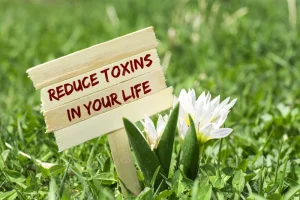
Throughout the time in which I have been in recovery, I have learned that I had to face these feelings head-on. While guilt and guilt and shame in recovery shame can feel overwhelming, there are effective strategies to help you navigate these emotions, fight the stigma, and foster healing in recovery. Being our best supporter rather than our worst critic could help extinguish many of our distorted feelings of guilt and shame before they become toxic. Through this self-acceptance and self-compassion strategy we could learn to help nurture rather than denigrate our self-esteem and our identity.

How Sandstone Care Can Help

Developing a strong support system is crucial when it comes to coping with shame and guilt during addiction recovery. Having the right people around you can make a significant difference in your journey towards sobriety. All of these strategies have been thoroughly researched and have proven to be successful in helping individuals cope with shame and guilt during addiction recovery. So, let’s get started on how to implement these practices in your recovery journey. Understanding and confronting the shame and guilt you experience in addiction is a critical part of recovery.
Guilt And Shame In Recovery: Top 10 Tips to Overcome Them
That s where ongoing aftercare and maintenance come into play. Furthermore, developing a strong support system offers multiple benefits such as providing emotional support, reducing stress levels, boosting self-esteem, and increasing accountability. It’s not surprising why people who have access to a solid support system Substance abuse are more likely to achieve their goals and maintain long-term recovery. It’s important to note that while shame can be damaging, it also has an evolutionary purpose. Feeling ashamed of immoral or unethical behavior helps us conform to social norms and maintain social order. However, this evolutionary mechanism can become problematic when it leads individuals to feel ashamed for seeking help or vulnerability.
The Role of Shame and Guilt in Addiction Recovery
- Shame, on the other hand, is the belief that we are inherently bad people and that bad behavior (e.g., substance abuse) is the result of that innate badness.
- Unfortunately, substance abuse can cause you to hurt people along the way.
- When you’re caught up in feelings of guilt and shame, you may begin to feel as though you deserve these bad feelings about yourself.
- You look at a functional MRI brain scan of somebody with an active addiction.
I won’t look alarmed or concerned, I’ll look flat, like I don’t care. If shame is the most stressful human emotion and shame leads me to freeze that how does that show up? Most of us aren’t aware of it, because it’s like I said, is the unthought No, but there are signs of it. The fact is, is that for most of us, we don’t we don’t see shame. I think there’s that =https://ecosoberhouse.com/ there’s a psychoanalyst Christopher bolus that talks about shame. And this is the CD I did a few years ago called the freedom of forgiveness.
The Role of Greater Boston Addiction Centers
Incorporating trauma-informed care is vital, especially for women who have experienced trauma alongside addiction. Trauma-informed approaches involve promoting trauma awareness, creating a safe environment, and recognizing the signs of trauma to avoid retraumatization. By addressing trauma in a sensitive and supportive manner, mental health treatment providers can significantly enhance the recovery journey for women. The impact of guilt and shame in recovery can be profound and multifaceted.
Common Challenges During Heroin Detox and How to Overcome Them
Pay attention to your gut reaction, the inner twinge that kicked shame into gear. Knowing the kind of emotion you are dealing with will help you to address shame at its core. According to studies in neuroscience, our propensity to think and act in a specific way increases the more we do so. The word “plasticity” describes the brain’s ability to change. When we alter our brains, it enhances the chance of thinking in new ways and doing other activities that are more healthful than using substances.

This step is not just about confession; it’s about healing through connection, acceptance, and forgiveness. Self-forgiveness is not about excusing harmful actions; it’s about recognizing that holding on to guilt and shame only keeps us stuck. Through forgiveness, we release the emotional weight we’ve carried and open the door to healing. Breaking the 4th step into smaller parts makes it easier to navigate.
